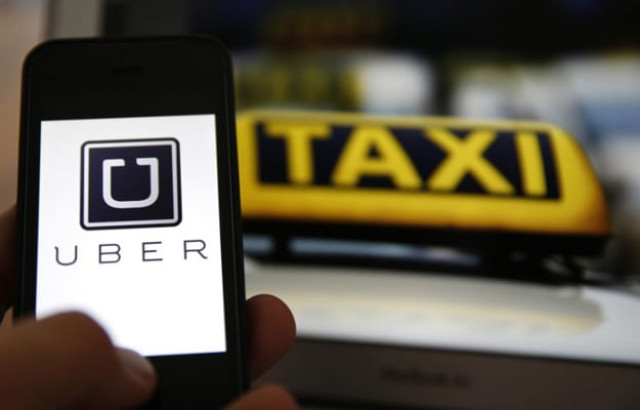Uber must get licences as ordinary taxi firm: top EU lawyer
The company does not employ drivers or own vehicles

The company does not employ drivers or own vehicles. PHOTO: REUTERS
Uber claims it is a service provider, connecting riders with freelance drivers directly and much more cheaply than traditional cab companies.
It has run into huge opposition from critics and competitors who say this allows it to dodge costly regulations such as licensing requirements for drivers and vehicles.
In an opinion on a case brought by a taxi drivers' association in the Spanish city of Barcelona, Advocate General Maciej Szpunar of the European Court of Justice said California-based Uber should be treated as a traditional taxi company.
Uber CEO apologies after leaked video
"The Uber electronic platform, whilst innovative, falls within the field of transport," Szpunar said in an ECJ statement.
"Uber can thus be required to obtain the necessary licences and authorisations under national law," he said.
The company reacted sharply, saying the opinion would change little in practice and only harm innovation.
"To be considered a transport company will not change the regulations we are subject to in most European countries," a spokesman for Uber France said.
"It will however hurt the necessary reform of outdated laws which prevent millions of Europeans being able to find a reliable ride with just one click," the spokesman said.
Officials at the company's main office in San Francisco were not immediately available for comment.
The opinions given by the ECJ's advocate generals -- its top lawyers -- are potentially significant since the EU's top court very often follows the advice in its final rulings, expected later this year for the Uber case.
Uber has had a rough ride in Spain, where a judge ruled in 2014 that its UberPop service risked breaking the law, leading to the Barcelona submission.
Early last year it decided to operate in Spain only a limited a version of its UberX service which uses licensed, professional drivers instead of amateurs.
The company does not employ drivers or own vehicles, but instead relies on private contractors with their own cars, allowing them to run their own businesses.
Licensed taxi drivers must undergo hundreds of hours of training, and they accuse Uber of endangering their jobs by using more affordable drivers who need only a GPS to get around.
Careem, Uber given a month to get cars commercially registered
Szpunar said he believed that Uber could not be considered solely an information service, which falls under a different regulatory regime.
Instead, he said it was a composite service, providing both information electronically and then the all-important means of transport.
"Uber cannot be regarded as a mere intermediary between drivers and passengers," Szpunar said.
"It is undoubtedly transport (namely the service not provided by electronic means) which is the main supply and which gives the service meaning in economic terms," he said.
Since the transport component is the main part of its offering, Uber "must be classified as a 'service in the field of transport'."
"It is thus subject to the conditions under which non-resident carriers may operate transport services within member states, (in this case, possession of the licences and authorisations required by the city of Barcelona regulations)," Szpunar concluded.



















COMMENTS
Comments are moderated and generally will be posted if they are on-topic and not abusive.
For more information, please see our Comments FAQ